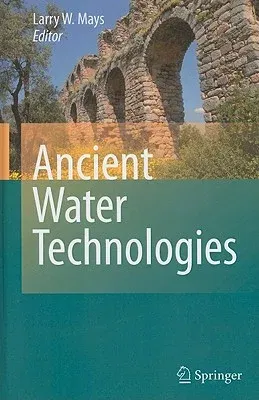There is no more fundamental resource than water. The basis of all life,
water is fast becoming a key issue in today's world, as well as a source
of conflict. This fascinating book, which sets out many of the ingenious
methods by which ancient societies gathered, transported and stored
water, is a timely publication as overextraction and profligacy threaten
the existence of aquifers and watercourses that have supplied our needs
for millennia.
It provides an overview of the water technologies developed by a number
of ancient civilizations, from those of Mesopotamia and the Indus valley
to later societies such as the Mycenaeans, Minoans, Persians, and the
ancient Egyptians. Of course, no book on ancient water technologies
would be complete without discussing the engineering feats of the Romans
and Greeks, yet as well as covering these key civilizations, it also
examines how ancient American societies from the Hohokams to the Mayans
and Incas husbanded their water supplies. This unusually wide-ranging
text could offer today's parched world some solutions to the impending
crisis in our water supply.
"This book provides valuable insights into the water technologies
developed in ancient civilizations which are the underpinning of modern
achievements in water engineering and management practices. It is the
best proof that "the past is the key for the future."
Andreas N. Angelakis, Hellenic Water Supply and Sewerage Systems
Association, Greece
"This book makes a fundamental contribution to what will become the
most important challenge of our civilization facing the global crisis:
the problem of water. Ancient Water Technologies provides a complete
panorama of how ancient societies confronted themselves with the
management of water. The role of this volume is to provide, for the
first time on this issue, an extensive historical and scientific
reconstruction and an indication of how traditional knowledge may be
employed to ensure a sustainable future for all."
Pietro Laureano, UNESCO expert for ecosystems at risk, Director of
IPOGEA-Institute of Traditional Knowledge, Italy

